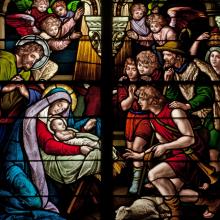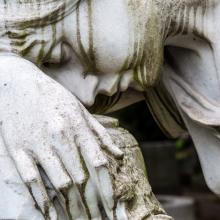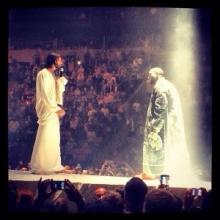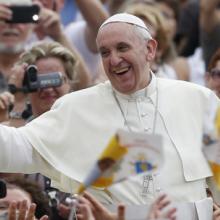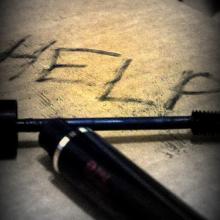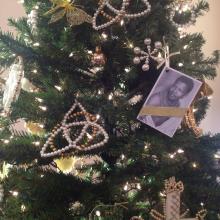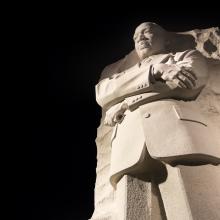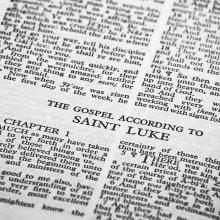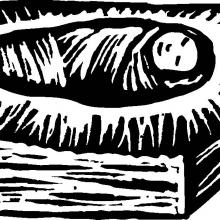Advent
I CONFESS THAT I do not often use the Revised Common Lectionary. As a Bible professor, I prefer to read texts in their larger literary and historical contexts. When a brief reading from one time period is lifted out of its context and juxtaposed with another written many centuries later, it can feel like an invisible hand is forcing me to compare apples and oranges—or even apples and mushrooms.
Nevertheless, I have been enriched by this year’s readings for Advent and Christmas. My “larger historical context” has become the sweep of a thousand years of Israelite history, from King David to the birth of the “son of David.”
For Christians, the coming of Jesus was a singularity. Though we focus on his birth in this season, that lower-class event was barely noticed at the time, and it is not mentioned by two of our gospel writers. It is his entire life, ministry, death, and resurrection that echoes throughout the ages and ushers in our hope of salvation. Our prophets and psalmists from the Hebrew Bible could not foresee details of the Christ-event from their perspectives centuries earlier. Yet their intuitions and hints and poetic expressions of joy over God’s in-breaking from their times are now borrowed to give voice to our exultation over Jesus’ coming today.
In a culture measured by quarterly profits and immediate gratification by credit card, we need a longer view to better understand what God is doing throughout human history. These Advent readings call us beyond the present to the millennia of the past and the hope of the future stretching to eternity.
WHEN JOHANNES BRAHMS first played his German Requiem in Vienna in 1867, the audience was shocked. In fact, scholars report that some “hissed and booed and behaved quite boorishly.”
This October, when the St. Louis Symphony performed the same piece along with German composer Detlev Glanert’s arrangement of Brahms’ Four Preludes and Serious Songs, it elicited a similar response.
Not to the work itself, but to what occurred during intermission.
As conductor Markus Stenz took the stage, two audience members began to sing. In strong, clear voices, they performed Florence Patton Reece’s famous justice hymn: “Which side are you on, friend? Which side are you on?” Nearly a dozen more scattered throughout Powell Hall joined in. While the audience watched in stunned silence, a banner unfurled from the balcony with a silhouette of a man’s face. It said: Requiem for Mike Brown 1996-2014.
As in Vienna, there were some boos from the audience and a few expletives—more disruption following the Aug. 9 shooting death of Michael Brown, an unarmed African-American teenager, by white police officer Darren Wilson. While the Vienna audience complained that Brahms’ music was too religious for a secular setting, one St. Louis symphony-goer asked, “Is Powell Hall a proper venue for a protest?” And a Catholic priest challenged: “Instead of chanting ‘Which side are you on?’ further dividing the community, try singing ‘How can we heal?’”
It’s the end of the year and, as always, a great time to reflect on what has happened over the past 12 months. I’ve been blessed to have so many talented and diverse writers share their voices and views alongside me on the God’s Politics blog. I want to take this opportunity to share some of my favorite posts from this past year with you, in no particular order.
Faith
We had so many great posts this year that explored the different facets of our faith. If you haven’t read them yet, make sure you look at:
What Good is a Ph.D. for reading the Bible? by Rev. Dr. Guy Nave
Five Things That Are Holding Christianity Back by Christian Piatt
10 reasons Why Men Should Not Be Ordained For Ministry by Eugene Cho
Women and Girls
Since the 1970s, Sojourners has been committed to resisting sexism in all its forms, while affirming the integrity and equality of women and men in the church and in the larger world. This year we’ve been even more intentional about looking at these topics through our blog and magazine.
Pope Francis is TIME's Person of the Year. But that is only because Jesus is his "Person of the Day" — every day.
Praises of the pope are flowing around the world, commentary on the pontiff leads all the news shows, and even late night television comedians are paying humorous homage. But a few of the journalists covering the pope are getting it right: Francis is just doing his job. The pope is meant to be a follower of Christ — the Vicar of Christ.
Isn’t it extraordinary how simply following Jesus can attract so much attention when you are the pope? Every day, millions of other faithful followers of Christ do the same thing. They often don’t attract attention, but they keep the world together.
As we prepare for the coming of Christ, the third Sunday of advent is celebrated in joy. As followers of Christ, it is reasonable to be exuberant about the birth of our Savior. The amount of happiness that can seep from the soul in response to a virgin birth, a perfect baby boy, and an adorable scene of livestock and shepherds befriending God’s family is immeasurable. Christmas music, Christmas decorations, and yes, even Christmas presents add to the joy and never fail to put a smile on my face.
This past weekend, as I tried to reflect on what it means to be joyful in Christ, my heart was temporarily hardened as I attended a Reentry Arts & Information Fair for returning citizens. I helped host a table for Becoming Church and their Why We Can’t Wait initiative.
The rhythm of the skies and seasons — the rhythm of the church year — both are ancient interlocking symphonies of light that call us to watchfulness and mindfulness. A small light can illumine vast spaces and dark corners of our selves. A light can reveal new aspects to things we thought we knew about our world. And, the light of knowledge can change perceptions about things we thought we understood.
As you read these words, there are tens of thousands of homeless children (perhaps more) on the streets in the United States. Reliable numbers are hard to find, because these children for the most part are invisible. You would probably not notice them if you saw them. Nevertheless, from law enforcement and other government reports, hotline statistics, and the experience of agencies such as youth outreach ministries, we know that homeless, runaway (or “thrown away”) children are part of our communities — eating at McDonald’s, riding the subways and buses, hanging out at the mall, talking on cellphones, and sitting in the park. What we don’t often see about their lives is that, as homeless youth, they are always vulnerable to the worst kinds of danger — from inadequate shelter, to sickness, to malnutrition, to physical violence, to terrible sexual exploitation.
Saying an opening prayer at the Nelson Mandela Memorial Service on Wednesday, in Washington, D.C. was both an honor and a blessing for me. The theme of the homily, by my good friend Rev. Dr. Allan Boesak, was “it ain’t over until God says it’s done.”
I sat there listening to those words from an African American gospel hymn in the midst of my own circumstance of being on the ninth day of a water-only fast for comprehensive immigration reform. In my weakened condition, I was grateful that I had done the opening prayer and wouldn’t have to do the closing prayer! But fasting focuses you and it made me consider how Nelson Mandela would feel about a broken immigration system that is shattering the lives of 11 million immigrants, separating parents from children, and undermining the best values of our nation.
In our nightly meeting at what is now a packed fasting tent, I could imagine Nelson Mandela there with us, telling us to never give up until we win this victory for so many vulnerable people reminding us, "it ain’t over until God says it’s done." Or, as he would tell cynical pundits and politicians, “it is always impossible until it is done.” Today, following a procession from the Capitol which will now include many members of Congress, we will go to that tent and proclaim that immigration reform is not over, and we won’t give up until it’s done.
Editor's Note: New Vision Renewable Energy connects Christians with opportunities to provide renewable solar lights to people in the developing world. Their Christmas Lights Advent Devotional features daily readings and questions from prominent Christian thinkers, including Sojourners president Jim Wallis. This Day 10 of Advent devotional from Jim Wallis is reprinted and adapted with permission of New Vision Renewable Energy. You can find the full Christmas Lights Advent Devotional guide and solar light kits here: http://nvre.org/devotional-order.html
Proclaiming Jesus as light of the world is an audacious statement. It directly challenges all those idols that persistently attempt to replace God as the center of our lives and our world. In our culture, a selfishness that denies any obligation to anyone or anything beyond our own self-interest may be the greatest idol of all. It denies that demanding more and more energy at great cost to our environment and the people who live close to the land has problematic consequences. We have lost sight of the common good and the consequences have been devastating.
In many places, hope has turned into despair. Darkness seems to be crowding out light. From where will our help come from?
What makes one a good person? Additionally, what makes one a good Christian? I have been spending some time wondering about this as news of Mandela’s death has been making it’s way across the planet. Was he a good man? I think so, but how do we measure that? How do we know? And if, as some have claimed, his greatness stemmed from his willing embodiment of his Christian faith, I need to know if he was a good Christian.
Guy Sorman writes of Mandela:
“The Commission for Truth and Reconciliation, founded by President Mandela and led by Bishop Tutu, is perhaps the most concrete example of Mandela’s Christian faith. Instead of the vengeance and reprisals that were expected and feared after years of interracial violence, the commission focused on confession and forgiveness. Most of those who admitted misdeeds and even crimes — whether committed in the name of or in opposition to apartheid — received amnesty. Many returned to civil life, exonerated by their admission of guilt.”
Mandela is exemplary not because he was perfect, always kind to everyone he met, an ideal husband and father, but because of these larger virtues that he also attempted to live out. He lived into these virtues — all of them, large and small, and all of them incompletely.
The American Family Association has been tracking major companies to see how they promote Christmas. It came up with the “Naughty or Nice” list where it has examined different company’s websites, circulars, commercials, and stores noting how many times they use the word “Christmas,” if at all. According to the association’s website, “If a company has items associated with Christmas, but did not use the word “Christmas,” then the company is considered as censoring “Christmas.” Its research has uncovered that if you shop at Radio Shack, Barnes & Noble, Family Dollar, and Foot Locker (just to name a few) then you are part of the problem and thus should be placed on the “naughty list.”
The American Family Association believes that there is a full out “war on Christmas.” Well, I would have to say that it is correct but not for the reasons it postulates.
I flew to Houston over the weekend to speak at the Conspire Conference. I stood on a stage looking out over a few hundred students in grades 6-12, telling them my story of having breast cancer in my 20s.
I talked to them about what a dark season of life it was for me. The chemo and radiation were difficult, but on top of that I also lost a good friend to cancer, I was out of work for seven months, while in my apartment building’s parking lot, my car was hit by a truck, and my boyfriend broke up with me. After all of that, I ended up in the hospital with a raging lung infection and a good chance that I would die.
On the nights I spent in the hospital, I’d lie awake and stare at the ceiling and wonder where God was. “Do you see me? Do you love me? Do you care about what’s happening in my life?” I prayed. “And if you see me and love me and care about my life, why don’t you come down and make this all go away?”
When I was 4 and 5 years old, my parents hung our stockings up at the beginning of Advent. Each morning, my younger sister and I would run down to the rec room to see if Santa had left us anything during the night. Finding an empty stocking was a huge relief, because the only reason Santa would leave us anything before Christmas was if we had been bad. Bad children would get a warning, you see. An onion or turnip swelling the stocking’s toe meant we were on probation and we had better shape up before Christmas or we’d end up on the naughty list.
This put the fear of God, er, Santa in me, I can tell you! When it happened to me (and it happened a lot — I reigned over my younger sister with the zeal of a tyrant!), I would rack my brain to figure out what I had done the day before that had garnered Santa’s judgment. Sometimes I knew what it was and I’d apologize for it and promise to do better, but sometimes I didn’t know what I’d done wrong and that was the worst of all. How can you fix something when you don’t quite know what needs fixing? I would worry and fret until Christmas morning. My stocking filled with candy and the presents under the tree were a relief, tangible evidence that in Santa’s estimation, I was a good girl. At least good enough to stay off the naughty list!
On the first day of Advent, I began to fast for immigration reform.
I’m not a recent immigrant or a political activist. But I’m a mother, a teacher, and a Christian living in Asheville, N.C., a community affected by our broken immigration system. And I was raised in a faith that tells me that this country should not have an invisible class of people or a justice system that tears apart families. That’s not justice to me.
So Dec. 1-3, I joined the National Days to Act, Fast, and Pray in solidarity with those who have been fasting for three weeks in a tent on the National Mall. Their goal is to urge the House GOP, specifically U.S. House Speaker John Boehner (R-Ohio), to call for a vote on immigration reform.
I always had very mixed feelings about Christmas as a kid. My dad — not a religious guy — went all out for this holiday, in the typical secular ways. He bought so many presents that it would end up being hard to make our way through the dining room, where we put the tree. We’d spend at least two weekends in November hanging lights and other swag outside, and the house resonated with Bing Crosby, Dean Marin and John Denver, all wishing us merry Christmas, over and over again.
I came to hate decorating the house. All of that time spent on the roof could have been much better used playing with my friends and, of course, I never hung the lights correctly. I’d flop them along the wrong side of the roofline, only to be sent back to make it right. And suffice it to say that, although I love the Rat Pack singers in particular, hearing any carol more than 43 times in the course of three weeks can sour even the most ardent fans.
Then there was the matter of the gifts. As I said, the piles of boxes were fairly obscene, which actually proved an embarrassment if we had other family visiting for Christmas. I was not a fan of being the center of attention, and opening my remaining presents while jealous cousins looked on made me just want to get it over and done with.
Much of our imagery of Advent is tied into the idea of waiting. Waiting for Emmanuel to come. Waiting for God to intervene. We’re in the middle of the night waiting for dawn to arrive. We’re waiting for something different to happen. One image is the pregnant woman waiting to give birth, which ties into the nativity story.
We spend a lot of our lives waiting for various things. Maybe the question for Advent is: What are we waiting for? And when does the waiting end?
So much of our religion has become about waiting. Waiting for heaven. Waiting for God to respond to a prayer and to change something. Waiting for God to right the wrongs. Waiting for God to set things straight. Waiting and waiting and waiting.
What if we’ve got it backward? What if someone is waiting for us?
I must use the adverb “almost” because there is a necessary distinction between all and some. It is the difference between mighty and almighty.
But we must never forget that whatever is mighty can harness the power to destroy lives, families, communities, institutions, and nations. This is what racism does on a daily basis.
We have, to some degree, lost the will and/or the capacity to identify and challenge this destructive and powerful force in our culture and institutions.
This Advent season presents the church with a great moment — an opportunity — to sharpen its discernment. It is an opportunity for the church and the world to experience a new birth in love, racial justice, and reconciliation.
There is an awesome moment in the opening chapter of the book of Luke where the writer frames his gospel as an epic celestial battle taking place in the heavenly realm: This is the story of the reign of men vs. the reign of God.
Luke makes it clear. What happened in these pages began in the days of King Herod of Judea (Luke 1:5). King Herod was a product and protector of empire. His father was appointed procurator of Judea by Julius Caesar. He subsequently appointed Herod military prefect of Galilee. After the death of Julius, Antony, and Octavian, Augustus Caesar favored Herod and gave him the name "king of the Jews," eventually becoming governor of Judea.
Herod was most concerned with maintaining his power — at all costs. He built the Roman Empire at his own people's expense. He built great monuments and structures, including the reconstruction of the Jerusalem Temple, enslaving his own people to do it. He used the Jews' labor to erect temples to pagan deities, and, paranoid of anyone who might usurp his power, Herod schemed against his own family, executing three of his own sons for insurrection — one only a few days before his death.
Enter a priest named Zechariah and his wife, Elizabeth.
“Sometimes I feel discouraged and think my work’s in vain, but then the Holy Spirit, revives my soul again.”
So where does this revival come? Often when we looked at a dilapidated building in our community, the revival comes with the eyes to see the possibilities of rehabbing, of new uses. The revival comes in community, in coming together to take action. There is nothing like some music and food, too, to bind us together.
Thinking back, I haven’t always been great about getting my car “winterized.” I grew up in fairly temperate Kansas, and mostly parked in a garage at home. There didn’t seem to be too great a chance of the car’s malfunctioning on me, and I was often more interested in where the car was getting me than whether it was in prime shape. I knew the car would never be perfect, but by and large, it seemed functional.
Then I moved to Chicago, where the winters were colder, the streets harder, and a garage a rare luxury. Suddenly winterizing seemed a bit more critical.
Today I am (by virtue of my baptism and in a way specifically called for by my ordination vows) partly in the business of serving as a prophet. Oh, I don’t rate myself as too great of one, but I do think that God has made me a part of that work. I may not be all of Christ’s Body, but I’m a piece of it. So prophecy and transformation are some of my duties too. And the season of Advent has me thinking a bit about whether I do enough to “winterize” my prophecy.
Invest in the transformation of lives by trying some of these fair trade, eco-friendly gift ideas or charities.
